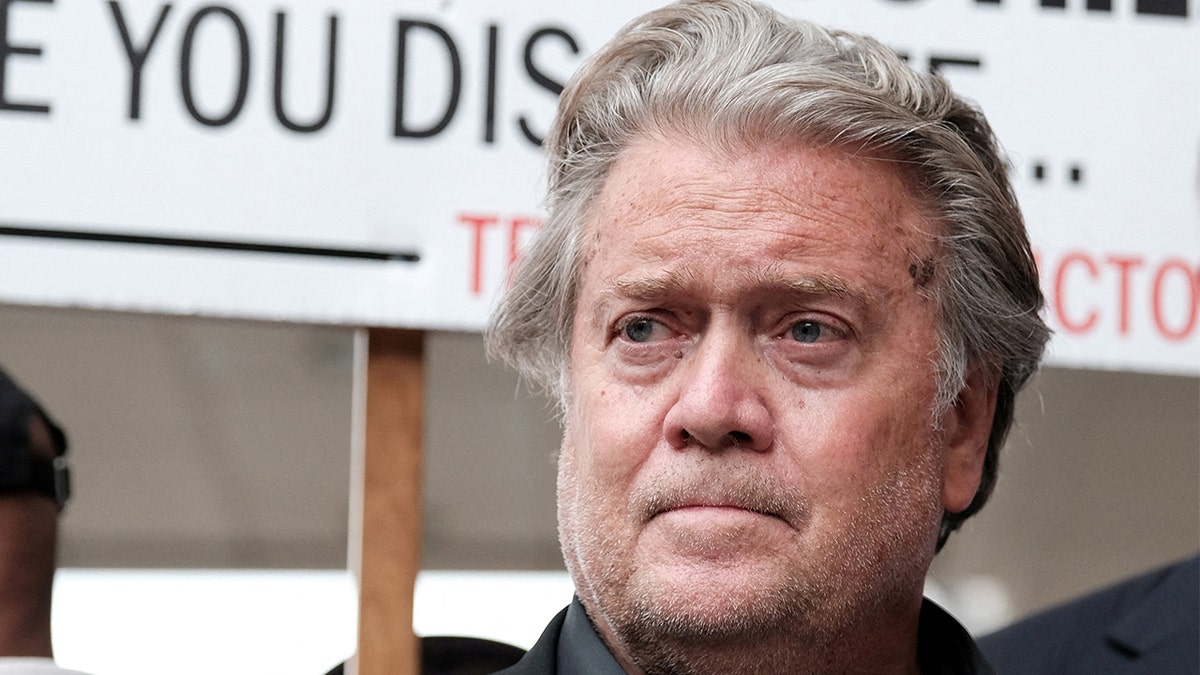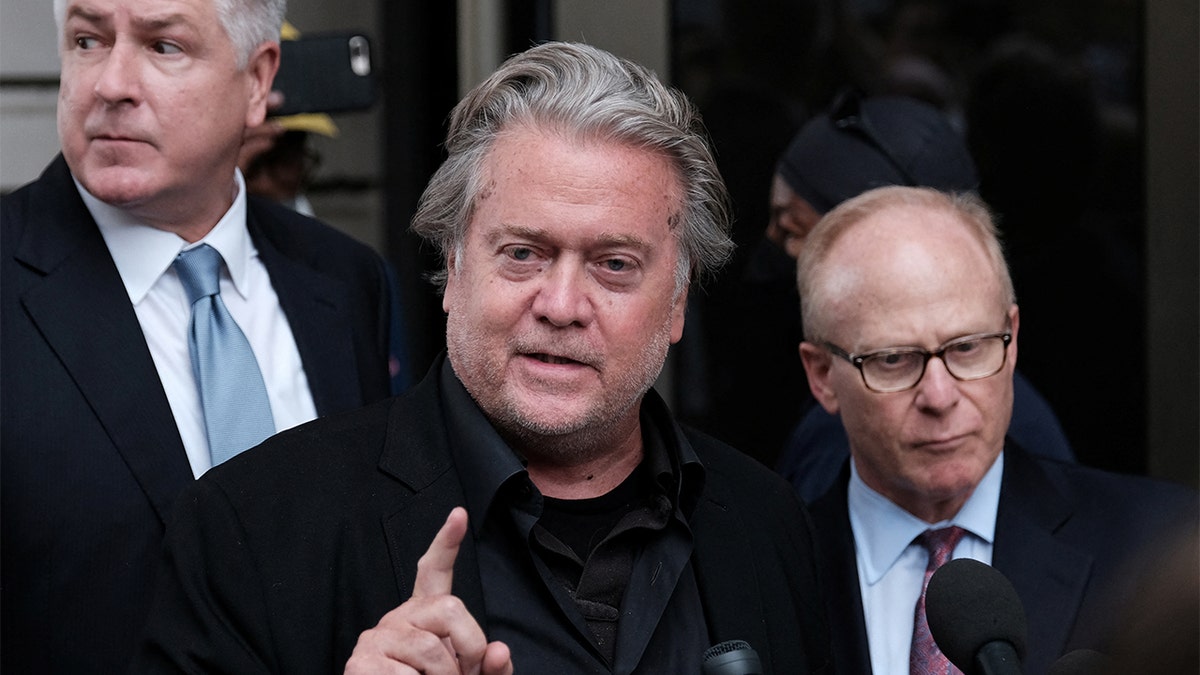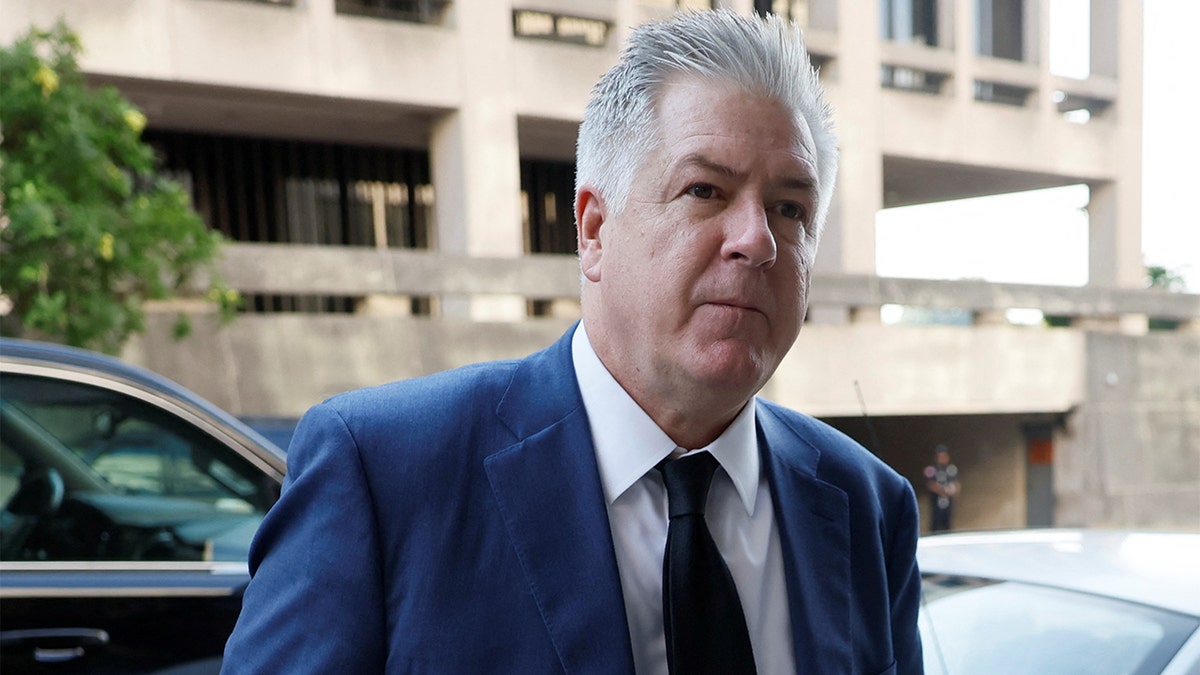Fox News Flash top headlines for July 22
Fox News Flash top headlines are here. Check out what's clicking on Foxnews.com.
Former Trump White House official Steve Bannon was found guilty of contempt of Congress after he ignored a subpoena from the House Jan. 6 Committee.
Bannon faces 30 days to a year in prison for each of the two misdemeanor charges. The jury was ordered to begin deliberating Friday morning.
U.S. District Judge Carl Nichols discharged the jury after hearing closing arguments from both the prosecution and defense.
The Department of Justice charged Bannon with two counts of contempt of Congress after he ignored a subpoena from the House Jan. 6 Committee. Bannon pleaded not guilty.
Bannon claimed executive privilege precluded him from appearing before the committee to talk about the Jan. 6, 2021, attack on the U.S. Capitol, though prosecutors noted that he left the White House in 2017.

Former Trump White House chief strategist Steve Bannon speaks with the media during the opening day of his trial on contempt of Congress charges stemming from his refusal to cooperate with the U.S. House Select Committee investigating the Jan. 6, 2021, attack on the Capitol at U.S. District Court in Washington on July 21, 2022. (Reuters/Michael A. McCoy/File Photo)
The Justice Department began closing arguments Friday morning with prosecutor Molly Gaston telling jurors, "This is a man who didn’t show up."
"He didn’t want to recognize Congress’ authority or play by the government’s rules," Gaston said. "Our government only works if people show up and play by the rules and are held accountable when they do not."
JUDGE DENIES STEVE BANNON'S REQUEST FOR DELAY TO CRIMINAL CONTEMPT TRIAL
"When he chose to defy a congressional subpoena, that was a crime," Gaston continued. "The defendant chose allegiance to Donald Trump over compliance with the law."

Former Trump White House chief strategist Steve Bannon speaks with the media at the end of the opening day of his trial on contempt of Congress charges stemming from his refusal to cooperate with the U.S. House Select Committee investigating the Jan. 6, 2021, attack on the Capitol at U.S. District Court in Washington on July 21, 2022. (Reuters/Michael A. McCoy)
The defense, however, told jurors that "the entire foundation of the government’s case rests" on the testimony of Jan. 6 Committee staffer Kristen Amerling.
CLICK HERE TO GET THE FOX NEWS APP
"You need to consider whether a witness has a friendship or hostility towards anybody connected with the case, that some something you need to consider," Bannon lawyer Evan Corcoran said.

M. Evan Corcoran, a lawyer of former President Trump's White House chief strategist Steve Bannon, arrives following his client's trial on contempt of Congress charges for his refusal to cooperate with the U.S. House Select Committee investigating the Jan. 6, 2021, attack on the Capitol at U.S. District Court in Washington on Friday, July 22, 2022. (Reuters/Evelyn Hockstein)
Corcoran told the jury that Amerling has an interest in the outcome of the case: "She’s been doing committee work for Democrats for 20 years. She has a relationship with one of the prosecutors on the case, Mrs. Gaston. It goes back 15 years. She’s contributed her own money to Democratic causes."
BANNON TRIAL: GOVERNMENT WITNESS HAS BOOK CLUB CONNECT TO PROSECUTOR
Corcoran also told reminded the jury about testimony that Amerling and Gaston had a relationship outside of work, as members of the same book club. Corcoran also told the jury politics are at play in this case.
"Prosecution has to be based on unbiased neutral evidence, politics can play no role, and Steve Bannon is innocent," he said.
Bannon's sentencing hearing is set for Oct. 21 at 3 p.m.
Following the decision, Bannon told members of the media that "we may have lost," but "we're not going to lose this war."
Bannon defense attorney David Schoen said that the prosecutor's argument "completely tears asunder Constitutional principle of separation of powers."
"But shame on this office of the United States Attorney's Office and the Department of Justice for how far it is. They put forward an argument today that completely tears asunder Constitutional principle of separation of powers. They argued to the jury today that when a person gets a subpoena, and executive privilege is invoked, it's for Congress to decide whether the executive privilege is valid and how broad it is. That's absolutely false," Schoen said.
U.S. Attorney Matthew Graves said in a press release that the subpoena "was not an invitation that could be rejected or ignored."
"The subpoena to Stephen Bannon was not an invitation that could be rejected or ignored," Graves said. "Mr. Bannon had an obligation to appear before the House Select Committee to give testimony and provide documents. His refusal to do so was deliberate and now a jury has found that he must pay the consequences."
CLICK HERE TO GET THE FOX NEWS APP
Steven M. D’Antuono, assistant director in charge of the FBI Washington field office, said that subpoenas are "critical in our system of government."
"The tenets of our government rely upon citizens adhering to the established rules of law. Lawful tools, such as subpoenas and other legal orders, are critical in our system of government," D’Antuono said. "Mr. Bannon was found guilty of contempt by a jury of his peers for his choice to ignore a lawful subpoena. The FBI will continue our sworn duty to investigate those who have committed violations of our laws and hold them accountable for their actions."





